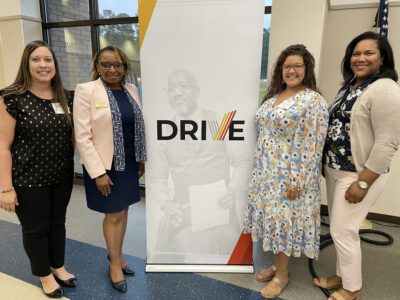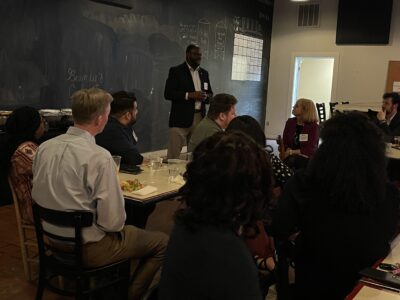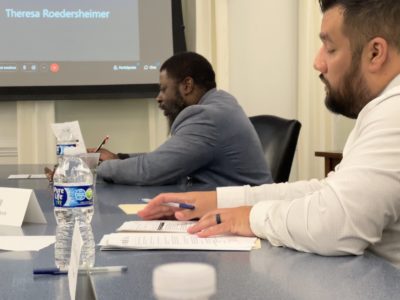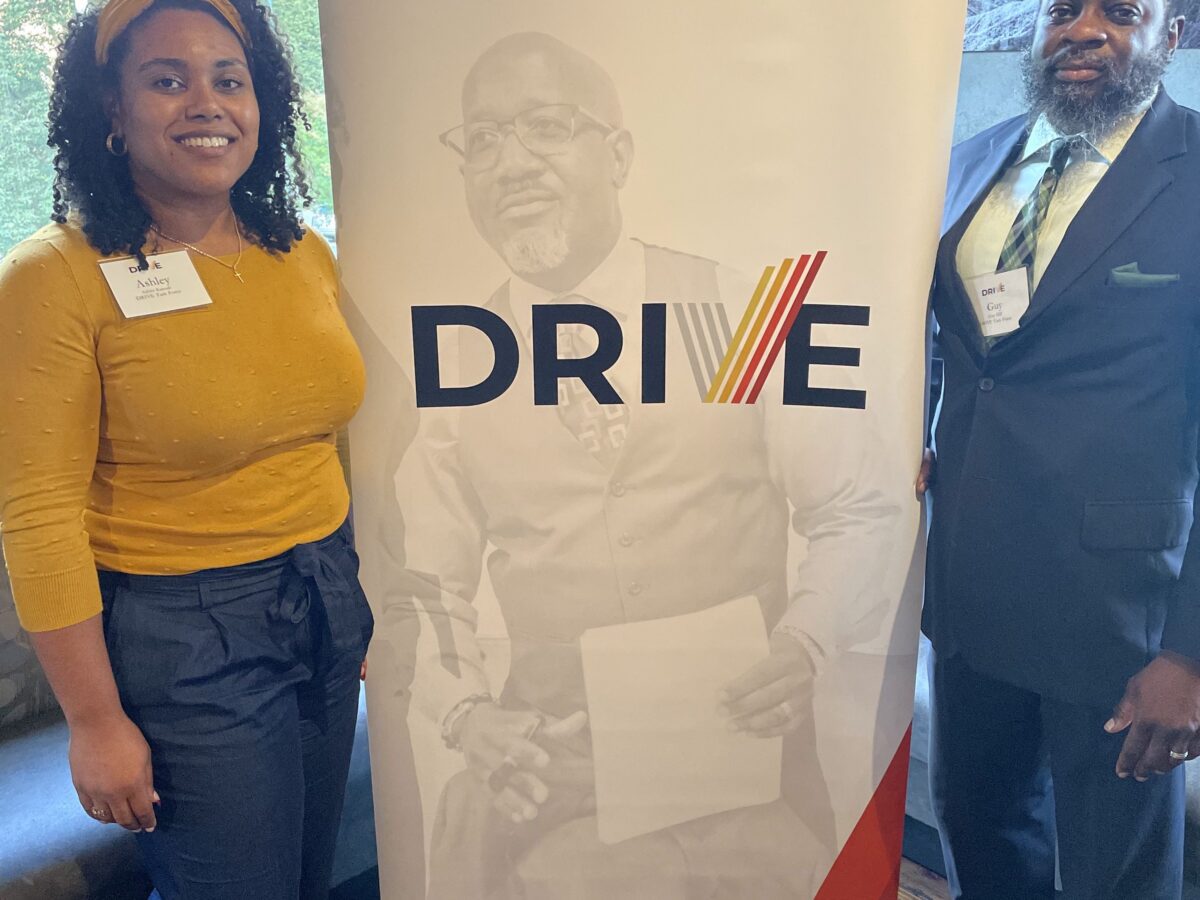

Share this story
|
|
Since Gov. Roy Cooper signed an executive order in 2019 creating the DRIVE Task Force, the group has focused on strategies of recruiting, preparing, and retaining educators of color.
DRIVE stands for Develop a Representative and Inclusive Vision for Education and consists of parents and guardians, K-12 educators, state and local government personnel, and both UNC System and community college personnel. In 2021, they collectively released recommendations for how to increase the racial, ethnic, and linguistic diversity of the state’s educator workforce.
Within the past few months, the task force has been traveling to different regions across North Carolina to learn about organizations and initiatives that align with their goal. The following are features from the Sept. 21 tour stop in Asheville.
Growing your own educators in Henderson
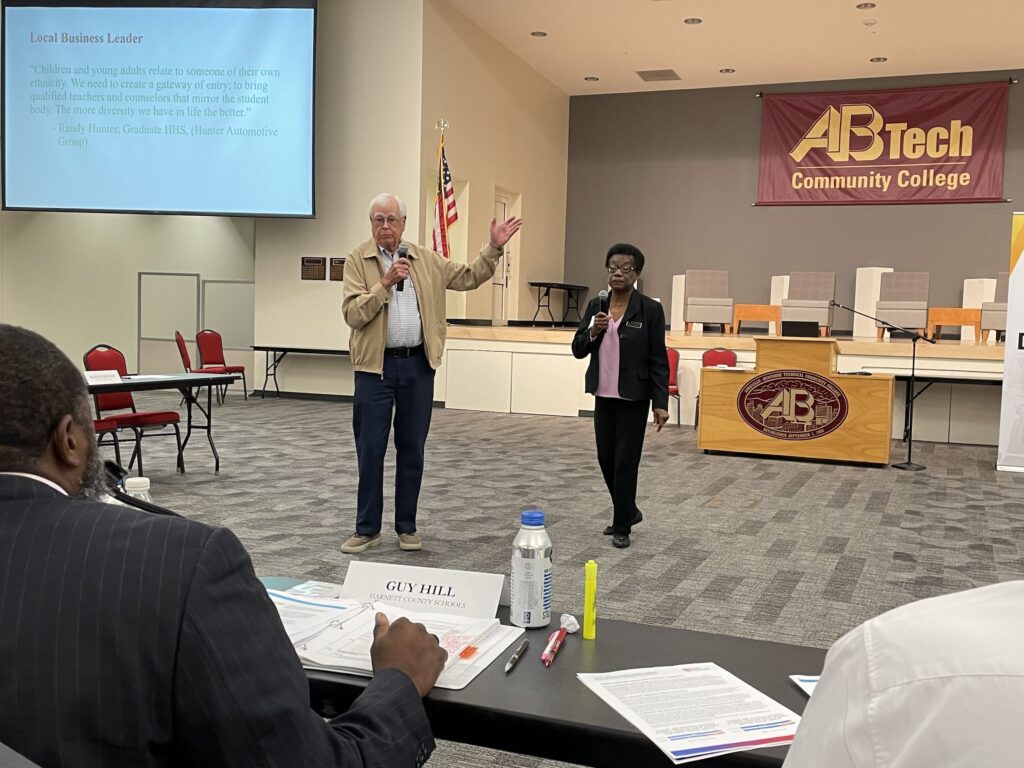

The Grow Our Own Teachers of Color Coalition is made up of the local NAACP chapter, El Centro – Latino Advocacy Center, and multiple churches, organizations, and individuals in Henderson County. Through the Henderson County Education Foundation, the collective effort creates scholarship and mentoring opportunities for students and staff of Henderson County Public Schools (HCPS) who are determined to be educators in the district.
The foundation’s website states that the county has about 35% students of color but only 7% teachers of color. As a result, the coalition aims to assist with creating “a teaching and administrative staff that is consistent with the racial diversity of the student body.”
In exchange for a three year commitment to teach in HCPS post graduation, recipients are awarded up to $3,000 per year, renewable for up to four years. They are also assigned a mentor throughout the duration of their experience.
NAACP Henderson president Melinda Lowrance shared that the coalition raised over $50,000 in 2022 in support of the initiative. With five scholarships administered thus far, the coalition anticipates raising enough funding for another five scholarships.
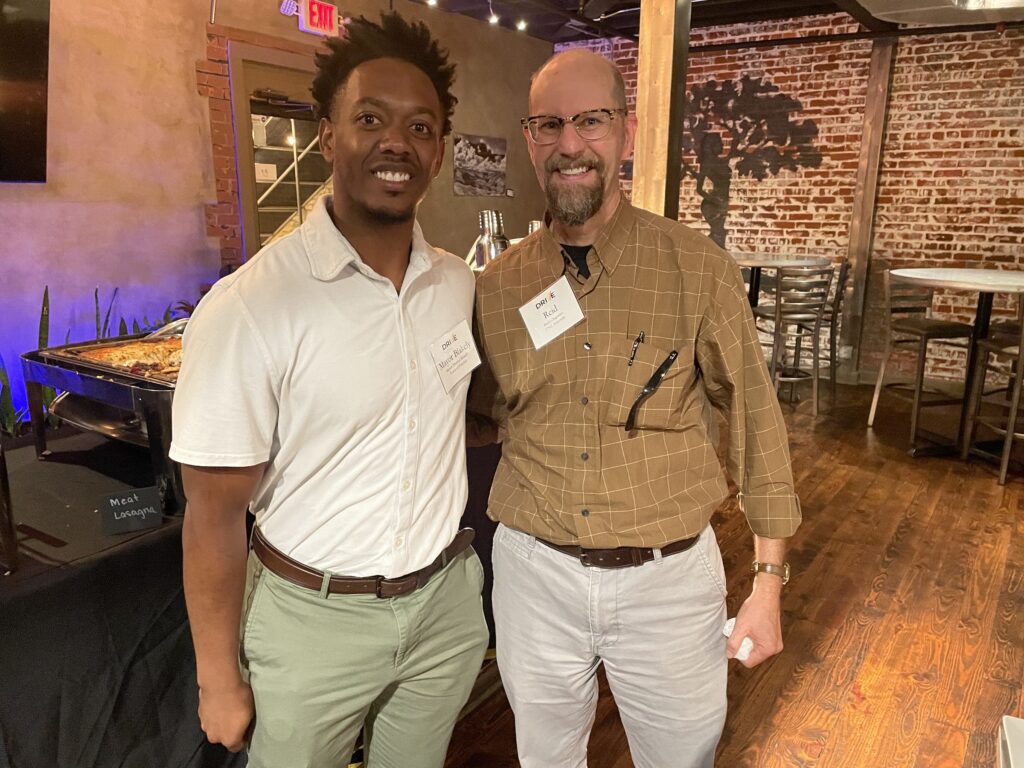

Promoting culture and the reclaiming of education
Dr. J. Allen Bryant is a Cherokee native and associate professor in the Department of Curriculum and Instruction at Appalachian State University (App State). In his work, he is promoting the reclamation of education, particularly among the Cherokee community. For Dr. Bryant, this focus is directly tied to acknowledging the history of psychological, physical, and sexual abuse that Indigenous students have been subjected to via legalized institutions.
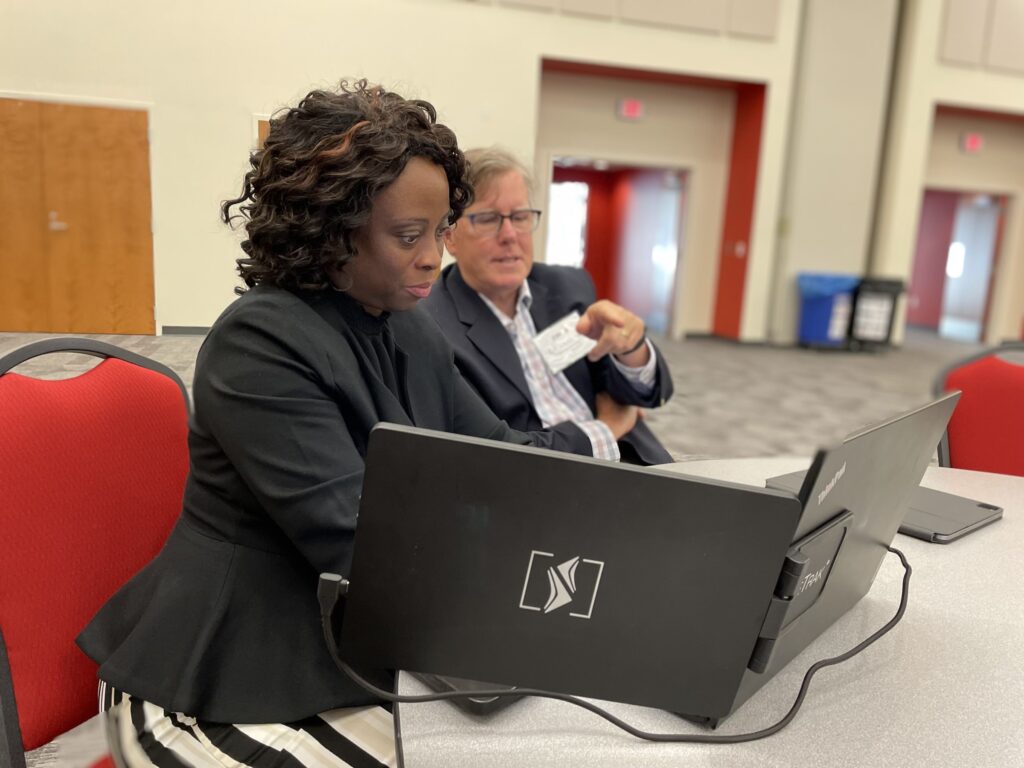

Dr. Bryant shared that a sign that he repetitively saw along his weekly commute to Cherokee High School read, “education changes everything,” to which he agreed, but recognized “not necessarily for the best.” He shared the history of mistreatment and attempts at cultural erasure through a story about his grandfather who, “under the guise of education,” had his mouth washed out with soap every time he spoke the Cherokee language.
Dr. Bryant also recounted stories of Cherokee students being met with questions like whether they still live in tepees or critiqued about how they celebrate Cherokee traditions, particularly from non-native professors. These examples magnify why he believes that colleges, too, still need to become safer, more hospitable, and more encouraging environments for Indigenous students.
Having entered its 10th year, the Gadugi Partnership between App State and Cherokee Central Schools has been one approach to reclaiming education through nurturing students’ knowledge and attachment to their heritage and cultural background. According to the mission statement, the partnership “strives to prepare, support and sustain the future leaders of the Eastern Band of Cherokee Indians through coursework, service and cultural immersion.”
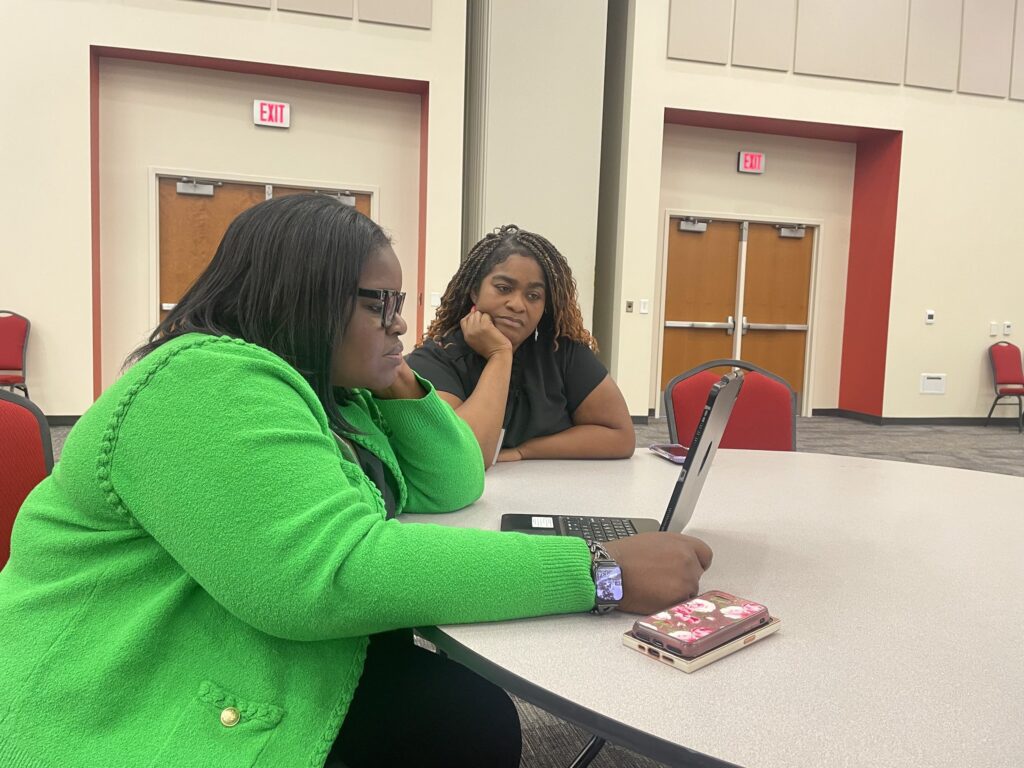

Dr. Debora Foerst is the principal at Cherokee High School and Gadugi program co-founder. She reported that since her start, the amount of classroom teachers who are tribal citizens has increased from approximately 7% to about 30%. Dr. Foerst believes that it aligns with intentional policy, specifically naming the requirement to hire Cherokee citizens that meet the qualification. Additionally, she named practices that she feels support the retention of Cherokee educators, such as integrating Cherokee language in curriculum, embedding cultural holidays into the calendar, involving the school in community events, and also having “cultural mentors” accessible to new teachers. In all, it’s through efforts like the Gadugi Partnership that Dr. Foerst said they have continued to see a return in their recruitment and retention of Cherokee educators.


Necessity of creating affinity space
To begin the segment, Copland Rudolph, the executive director of Asheville City Schools Foundation (ACSF), offered appreciation to Black educators, past and present, who she says “have not only taught Asheville children but sustained our school systems since 1887.” Referencing the vote that established the local school system, Rudolph went on to say that “had it not been the Black community in Asheville, we wouldn’t have Asheville City Schools.”
According to Dr. Mark Dickerson, assistant superintendent for human resources, Asheville City Schools’ (ACS) goal has been to have a “proportionate ratio of Black certified teachers for our Black students.” Currently, he said Black students make up about 18% of our student population while Black teachers only make up 5% of certified teachers.
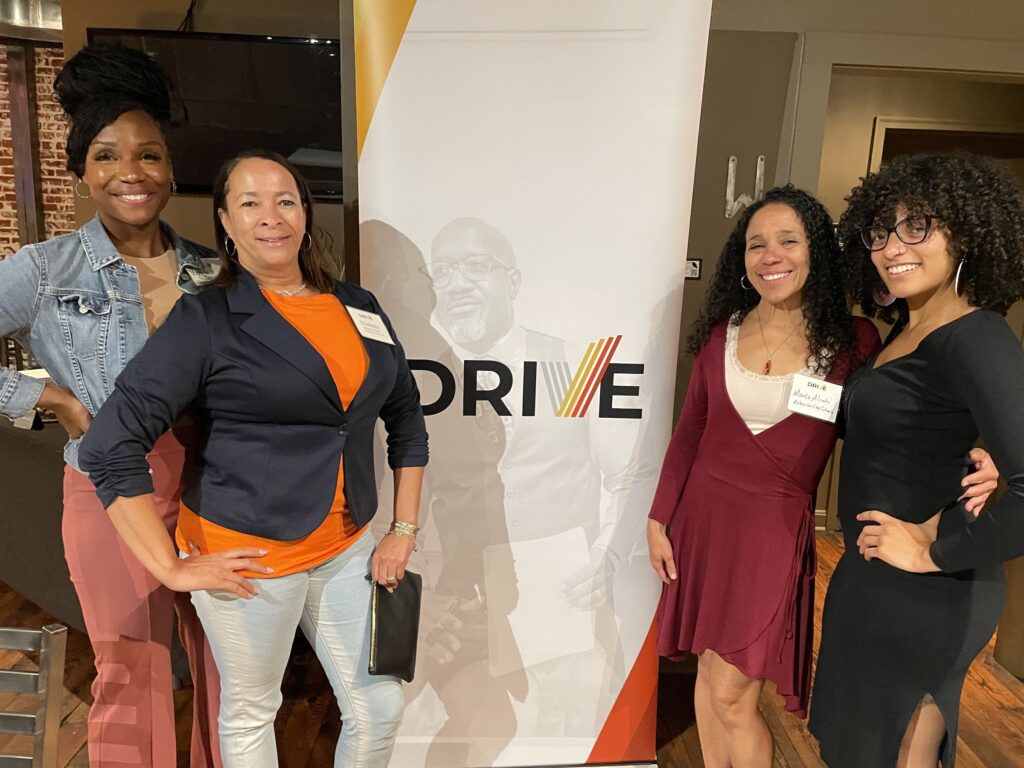

Furthermore, Dr. Dickerson stated that ACSF and ACS recognized that the commitment to closing the racial opportunity gap must include robust support for current Black staff as well as innovative approaches to recruitment and retention.
In 2021, the Black Educator Excellence Program (BEE) was created as one of the responses to addressing the matter. Dr. Dickerson describes the program as a cohort model that creates opportunities for Black staff fellowship and offers the ability to share professional experiences and show support for one another. Examples of support that participants receive include monthly academic support sessions and training sessions discussing Black fatigue and emotional resilience.
Nicole Cush is the leader of the School of Inquiry and Life Sciences at Asheville (SILSA) and also a participant in the inaugural cohort of the BEE. Cush describes recruitment and retention as something so dear to her heart that she has made it her focus in her doctoral pursuit at Western Carolina University. Informed by three decades of experience in education, Cush emphasized that while funding is important, solely throwing money at the problem doesn’t lead to desired solutions or outcomes.
She lists therapy, group work, and the ability to heal as necessary to address the unattended generational trauma of Black folk in the area. Skilled at curating affinity groups, Cush founded the Glitter Sisters, a mentoring group for Black girls at Asheville High and SILSA. Another example is the Racial Equity Ambassador Program (REAP), a program for high schoolers who are committed to addressing race and racism and creating a culture of belonging and care. Cush places BEE among the necessary affinity groups, which she feels plays a crucial role in fostering a sense of belonging and creating equitable spaces that are sacred for Black staff.
Dr. Dickerson expressed that implementing and sustaining initiatives like BEE has not come without setbacks. He named changes in staff and district leadership, including superintendent turnover as contributors to challenges with program stability. Additionally, he mentioned a federal lawsuit filed against the district due to claims of reverse discrimination.
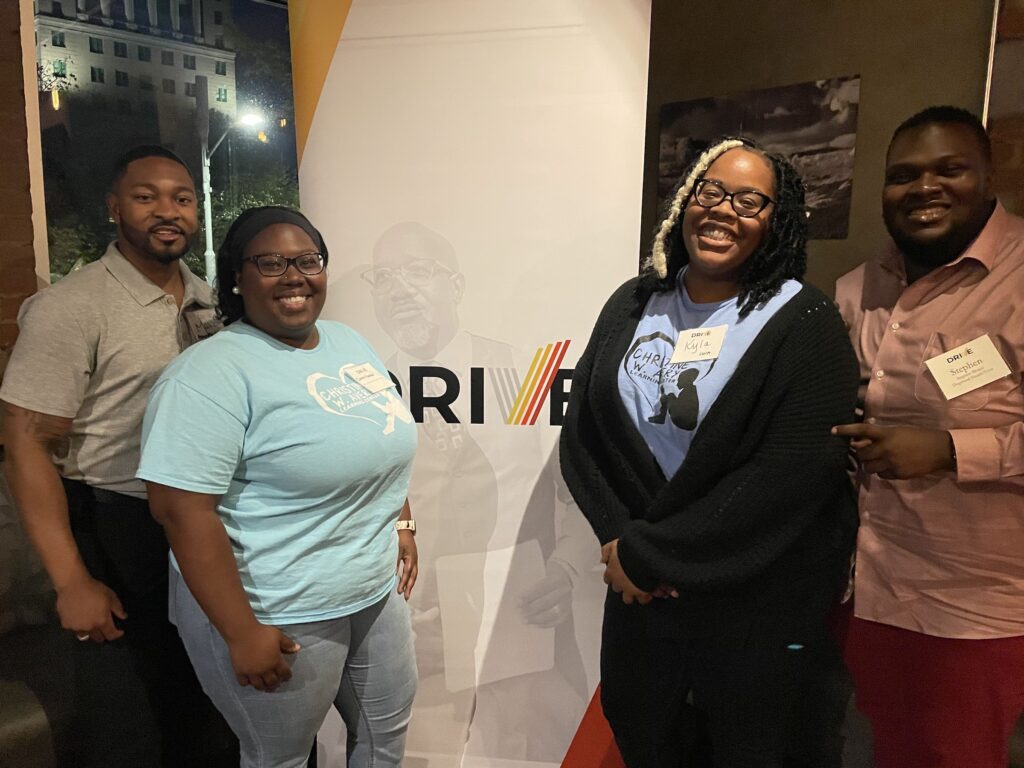

Western Carolina University initiatives
Dr. Kim Winter is the dean college of education and allied professions at Western Carolina University (WCU). She highlighted the following programs as part of WCU’s effort to develop diverse leadership in education:
- Call Me MISTER: “Mister” stands for Mentors Instructing Students Toward Effective Role Models. It is now a national teacher diversification initiative, founded by Dr. Roy Jones at Clemson University. Since beginning in 2021, WCU has the only Call Me MISTER cohort in North Carolina. Dr. Charmion Rush, associate professor of inclusive and special education, is the program director for the WCU cohort. As part of the program, misters receive at least $5,000, a tech package that includes a laptop, a mentor, and the chance to participate in a summer internship. WCU’s goal is to enroll three to five misters each fall.
- STEP with WCU: Student to Teachers Through Educator Pathways is a partnership that WCU has developed with both Iredell-Statesville Schools and Henderson County Public Schools. The aim is to recruit students from diverse backgrounds into the teaching profession. According to Dr. Winter, students engage with the Teaching as a Profession curriculum and the high school, have visits to WCU’s campus, and earn six credit hours through the program.
- LEAF in ECE: Leadership, Equity, and Access Fellowship seeks to increase the number of licensed early childhood educators. It is a birth to kindergarten program dedicated to increasing access and equity in the early childhood workforce in underserved communities. Eligible participants are placed in cohorts of up to 30 students, receive full coverage of tuition and fees, additional stipends, mentoring, and other support along their path to licensure. According to Dr. Winter, between the two cohorts, they are on pace to increase the early childhood workforce in Western Carolina by 18%.
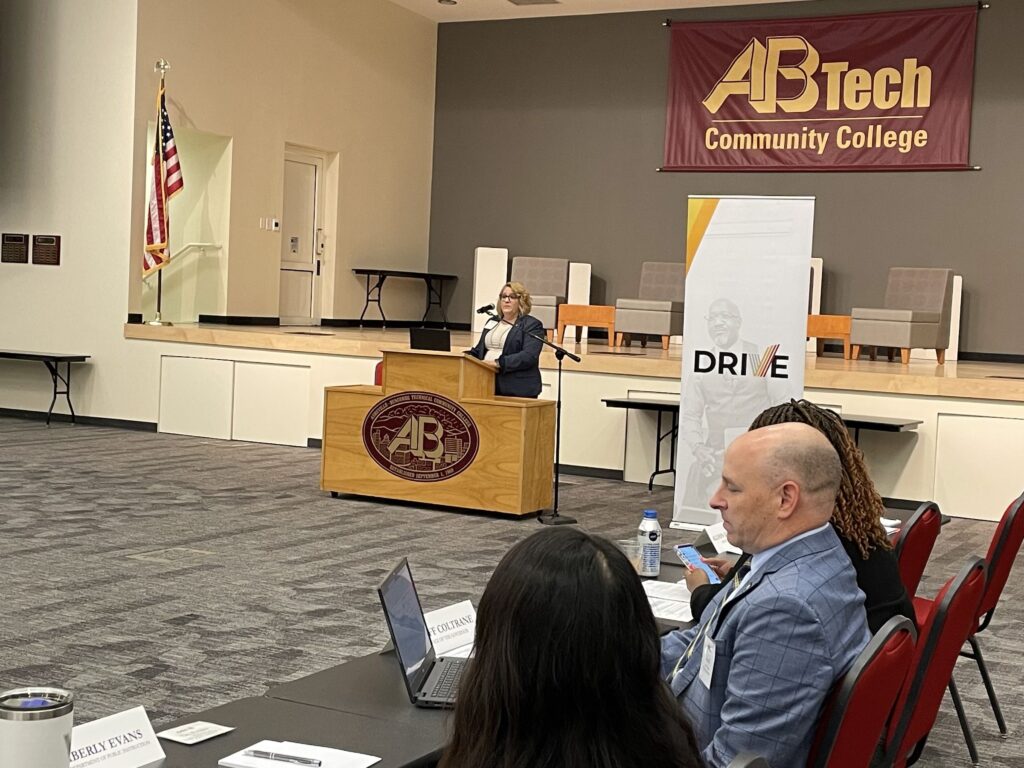

- NC Principal Fellows: Aligned with their Master’s in School Administration (MSA), students complete 36 hours. Using a hybrid cohort model, participants come together four times per semester. The fellowship is geared toward educators who exemplify strong leadership and are looking to move into administrative roles. The website states that the two-year loan forgiveness system fully covers tuition and other expenses that are repayable through seven years of service upon completing the program.
- LEAP: The Language Enhancement After School Program stems from a partnership between the college, Jackson County Public Schools, and the Cullowhee United Methodist Church. With over 100 tutors and volunteers each semester, the program aims to support K-8 students who are learning English as a second language. Simultaneously, it allows students with education majors to acquire experience with supporting multilingual students.
- TRUE with WCU: Transformative Rural-Urban Exchange program is a collaboration between WCU and North Carolina A&T’s School of Education. For over 20 years, small groups of students majoring in education at each school have traveled to the partner location for a week to learn about the experience of teaching in the respective environment.
- Participate Learning Partnership: WCU has partnered with Participate Learning for their Global Leaders Scholars Program. The initiative is said to focus on getting participants to “understand their membership in the global community and how to use global learning opportunities in problem solving through all aspects of instruction.” Dr. Winter announced they are currently recruiting their first cohort of undergraduate students and are scheduled to launch the program in October.
The tour concludes
The last tour stop will be Nov. 16 and 17 at Winston-Salem State University. Though the task force will conclude in December 2023, the succession plan calls for a vote to determine the organization that will continue to govern the work moving forward. Registration information for the final tour stop is available here.





